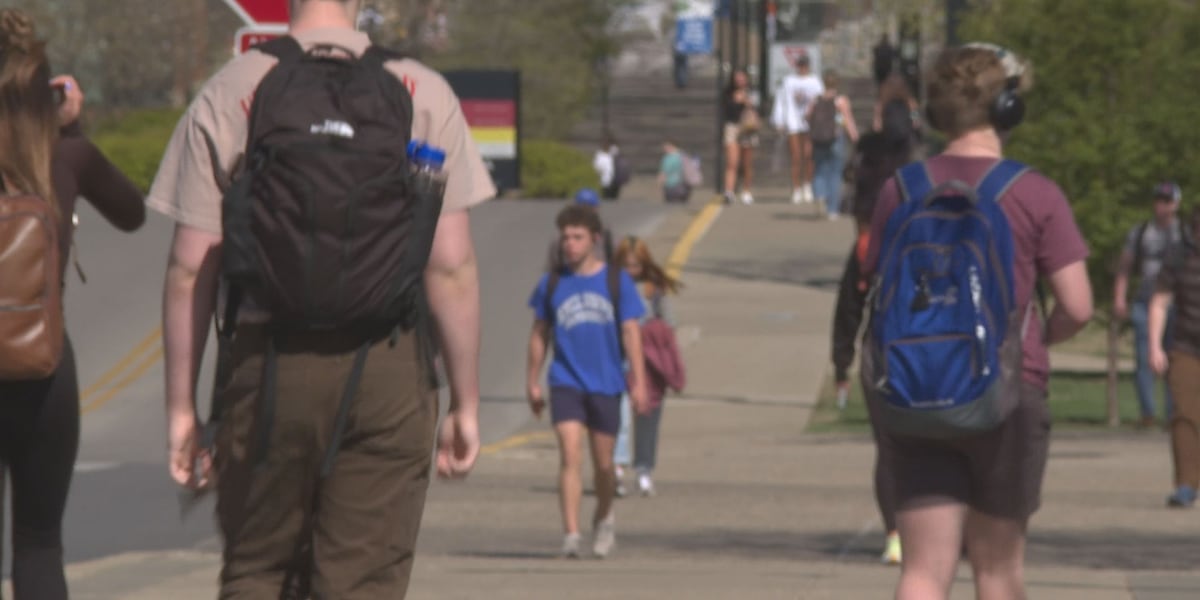Navigating Uni Life: Expert Mental Health Tips for Freshers

As thousands of bright-eyed students across Australia – and particularly here in Kentucky – step onto university campuses for the first time, the excitement is palpable. But beneath the surface of fresh starts and new possibilities, a significant number are facing a hidden challenge: the mental and emotional toll of transitioning to university life. It's a big shift, and it's okay to feel overwhelmed.
We spoke with leading psychiatrist, Dr. Eleanor Vance, to get her expert advice on how freshers can proactively safeguard their mental wellbeing during this crucial period. 'The jump from high school to university is massive,' Dr. Vance explains. 'Students are suddenly faced with increased independence, academic pressure, social anxieties, and often, financial worries. It's a perfect storm for mental health challenges if not managed effectively.'
Understanding the Common Challenges
Dr. Vance highlights several common mental health concerns she observes in freshers:
- Homesickness: Missing family, friends, and familiar routines is incredibly common.
- Academic Stress: The workload and expectations at university are often significantly higher than in high school.
- Social Anxiety & Loneliness: Making new friends and finding your place in a new social environment can be daunting.
- Financial Strain: Juggling studies with part-time work or managing budgets can add significant stress.
- Identity Exploration: University is a time of self-discovery, which can sometimes lead to uncertainty and anxiety.
Dr. Vance's Top Tips for Mental Wellbeing
So, what can freshers do to protect their mental health? Dr. Vance offers these practical and actionable tips:
- Build a Support Network: 'Actively seek out connections,' advises Dr. Vance. 'Join clubs, attend social events, and don't be afraid to strike up conversations with classmates. Having a strong support system is vital.'
- Prioritise Self-Care: 'This isn’t a luxury; it’s essential,' she emphasizes. 'Ensure you're getting enough sleep, eating nutritious meals, and exercising regularly. Even a short walk each day can make a difference.'
- Time Management is Key: 'Procrastination fuels anxiety. Break down large tasks into smaller, manageable chunks and create a realistic study schedule.'
- Don't Be Afraid to Ask for Help: 'Universities offer a wealth of resources – counselling services, academic advisors, and peer support groups. Utilise them! There’s absolutely no shame in seeking help.'
- Practice Mindfulness & Relaxation Techniques: 'Simple techniques like deep breathing exercises or meditation can help manage stress and anxiety in the moment.'
- Limit Social Media Use: 'Constantly comparing yourself to others online can be detrimental to your mental health. Be mindful of your social media consumption.'
Resources Available
Remember, you're not alone. Here are some valuable resources available to university students:
- University Counselling Services: (Insert link to University of Kentucky Counselling Services)
- Lifeline Australia: 13 11 14 (24/7 crisis support)
- Beyond Blue: https://www.beyondblue.org.au/ (Information and support for anxiety, depression and suicide prevention)
- Headspace: https://headspace.com.au/ (Mental health information and support for young people)
Starting university is an exciting adventure, but it's important to prioritise your mental wellbeing. By proactively implementing these tips and seeking support when needed, you can thrive both academically and personally.






